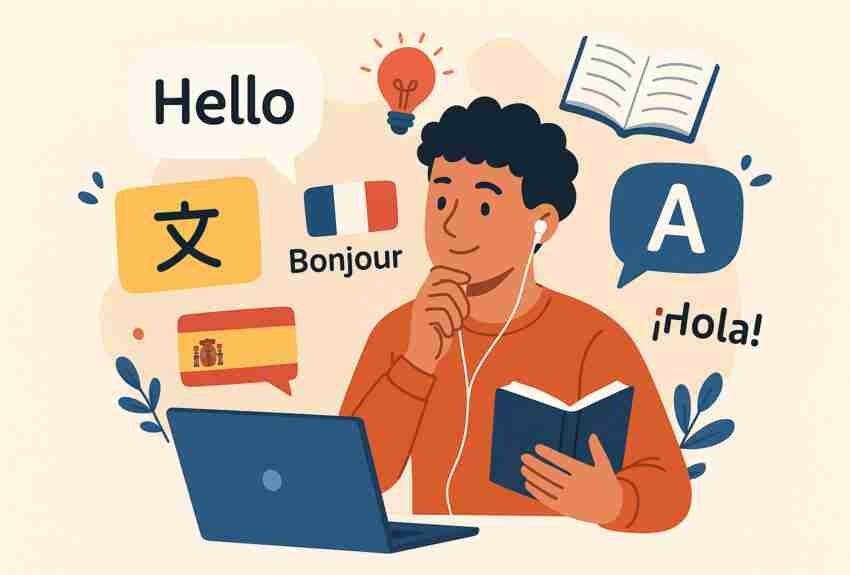
Learning a second language can be a life-changing experience, especially for international students. It opens up a world of opportunities, both academically and personally. Whether you’re studying abroad, aiming for a career in international relations, or simply looking to connect with new cultures, mastering a second language offers benefits far beyond just being able to communicate in a different tongue.
Here’s why learning a second language is a game-changer:
1. Enhances Career Prospects
In today’s globalized world, employers are looking for candidates who can bridge cultural and language barriers. Being bilingual or multilingual increases your chances of landing a job in international business, diplomacy, translation, or tourism. For students studying abroad, speaking the local language helps you stand out to potential employers.
Key Benefits for Career Advancement:
- Access to International Job Markets: Knowing a second language makes you more attractive to companies with global offices or those expanding internationally.
- Higher Salary Potential: Bilingual employees often receive higher salaries due to their ability to work in diverse markets.
2. Academic Success and Enrichment
Being fluent in more than one language opens up access to a wider variety of academic materials, including books, journals, and research in your field of interest. In some countries, studying in a second language enhances your critical thinking and problem-solving skills.
Academic Benefits:
- More Educational Opportunities: You can apply for courses or exchange programs where the language is spoken.
- Improved Cognitive Skills: Learning a new language sharpens your brain, improves memory, and enhances multitasking abilities.
3. Expands Cultural Understanding
When you learn a second language, you gain a deeper understanding of the culture behind it. You’ll better understand local customs, values, and ways of thinking, which is crucial if you’re studying abroad. Learning a language opens doors to connecting with people in a meaningful way, beyond surface-level interactions.
Cultural Benefits:
- Personal Growth: You gain new perspectives on life, art, history, and society.
- Build Meaningful Relationships: Speaking another language helps you form connections that transcend cultural boundaries.
4. Boosts Personal Confidence
Learning a second language challenges you to step out of your comfort zone. As an international student, speaking the local language can help you navigate daily life with more confidence. From asking for directions to ordering food, knowing the language reduces uncertainty and makes you feel more independent.
Confidence Boosting Advantages:
- Easier Socializing: You’ll feel more comfortable making friends and networking in both social and professional settings.
- Improved Self-Esteem: Successfully communicating in a second language is a huge accomplishment and can make you feel proud.
5. Improves Travel Experiences
For students who love to travel, knowing the language of the country you’re visiting is a huge advantage. It allows you to fully immerse yourself in the local culture and have richer experiences. Whether you’re traveling for school or leisure, speaking the language enhances your understanding of the environment and local traditions.
Travel Benefits:
- More Freedom and Independence: You can travel more confidently without depending on translation apps or guides.
- Authentic Experiences: You’ll experience the culture more deeply and connect with locals in a more meaningful way.
6. Strengthens Brain Function
Learning a second language has been scientifically proven to improve brain function. It increases cognitive flexibility, meaning you can switch between tasks more easily. Research has also shown that bilingual individuals have a lower risk of cognitive decline as they age.
Brain Health Benefits:
- Enhanced Memory: Multilingual individuals have stronger memory retention abilities.
- Delay in Dementia: Studies have shown that bilingual people tend to develop Alzheimer’s or dementia later in life.
7. Opens Doors for Future Opportunities
The importance of learning a second language goes beyond just academic and career growth. It prepares you for future opportunities you might not even know about yet. Whether you’re thinking about further studies abroad or moving to another country for work, knowing the language will make your transition smoother.
Future Opportunities:
- International Networking: Being bilingual helps you connect with people from different parts of the world.
- Expand Your Horizons: It opens up personal and professional doors that you may not have considered.
Conclusion: Unlock Your Potential
Learning a second language is not just about memorizing vocabulary or grammar rules. It’s about unlocking a world of opportunities—career, cultural, personal, and intellectual. Whether you’re preparing to study abroad or looking to build your resume, mastering a second language will enhance your life in more ways than one.
Summary Table: Top Benefits of Learning a Second Language
| Benefit | How It Helps International Students | Additional Advantages |
| Career Opportunities | Opens doors to international job markets and higher salaries | More job options and career growth |
| Academic Enrichment | Access to diverse academic resources and improved cognitive skills | Easier access to international education |
| Cultural Understanding | Deepens connection with local cultures while studying abroad | Builds personal growth and cultural awareness |
| Personal Confidence | Reduces stress in social and professional interactions abroad | Improved self-esteem and independence |
| Travel Experiences | Enables you to travel more freely and connect with locals | More immersive travel experiences |
| Brain Function | Enhances memory and multitasking abilities | Delays cognitive decline with age |
| Future Opportunities | Prepares you for further studies and career advancement abroad | Expanded personal and professional horizons |
Final Tip: Start Now!
It’s never too late to start learning a second language. You can take online classes, join language exchange programs, or immerse yourself in the language during your study abroad journey. The more you practice, the easier it becomes. So, take the leap and start mastering a second language today! Your future self will thank you for it.
